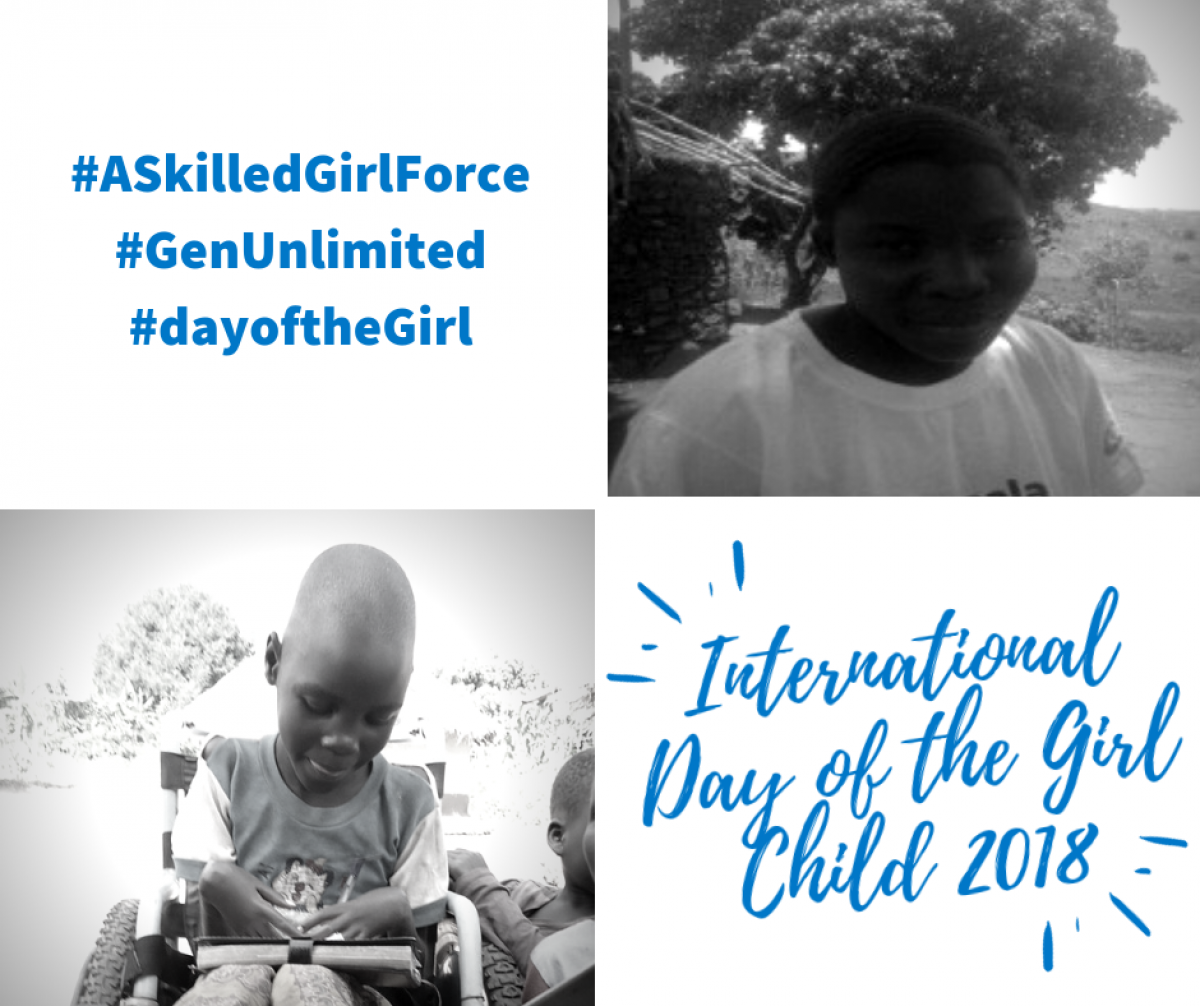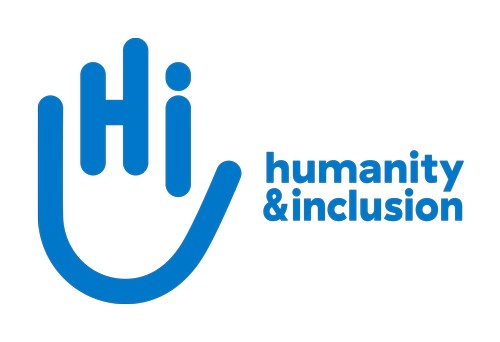International Day of the Girl Child 2018
2018 theme: With Her: A Skilled Girl Force
To celebrate the International Day of the Girl Child, the Making It Work team shares with you the stories of three girls with disabilities in Uganda, Nigeria and Malawi who have crossed path with our country partners. These stories highlight their strength and the powerful impact of education. To educate girls, including girls with disabilities, is to build “a Skilled Girl Force” for tomorrow.

Miremba* was identified by LIDDWA (Lira District Disabled Women Association), after being rejected by her father because of her physical impairment. LIDDWA is an organization of disabled women in Northern Uganda, working on forging a district community where women and girls with disabilities live dignified and empowered lives. Before LIDDWA stepped up, Miremba’s mother used to carry her on her back for her to be able to go to school. The organization helped them acquire a wheelchair. Every day, Miremba’s mother pushes her wheelchair to the main road where her fellow pupils take over and help her get to school.
Miremba is now 10 years old. She goes to school and is grateful to her teacher that encourages her to stay in school despite the occasional hardship she has to face there. She went from feeling like she “had no future” to see herself become a nurse. In her own words: “I want to be a nurse when I grow up. I also appreciate my mother who never left me alone when my father called me cripple; she is the best mum on earth when I become a nurse I will make sure she does not suffer in the hospital.” There is hope and confidence in Miremba’s words and so much gratitude for our country partner and everyone involved.
Precious* also found hope in the work of Inclusive Friends Association (IFA), who aims at restoring the dignity of women and girls with disabilities, in the Plateau State of Nigeria. Precious was born with a hearing impairment, something her parents only realized five years later. At first, they felt overwhelmed by her disability but as their girl grew, her mother started to teach her about trade. She passed down the skills she had developed in her professional life, bearing in mind the idea that her daughter would therefore be able to earn a living for herself as she grew. At the age of 8, Precious attended school for the first time, when her parents learnt about an affordable special school in their community. At the age of sixteen, while in senior secondary school 1, Precious was diagnosed with breast cancer. Her parents sold their only piece of land and used their life’s savings for their child’s breast cancer surgery. The surgery was successful but left Precious’ family with no resources for her to continue her education. This is when Precious’ mother stepped into Inclusive Friends Association’s Office, enquiring: “Is this IFA? I have a deaf daughter who needs help”.
The organization helped them by enrolling Precious at the Plateau School for the Deaf, Bassa, under their Learning Together scholarship project. Through this project, IFA gives scholarship to children with disabilities for them to pursue their education and attain their individual goals. The organization supports its vision of a world where people with disabilities live fulfilled lives in their communities. Precious is seventeen now: she is preparing for her senior level school certificate exams. She learns enthusiastically and dreams of becoming a medical doctor.
In Malawi, Visual Hearing Impairment Membership Association (VIHEMA Deafblind Malawi) identified Violet* back in 2010. She was 11. She shared with them her struggles as a deaf and blind person. The organization sent her to a school for Deafblind people so she could receive a basic education. She chose entrepreneurship as a career, which led her to pursue studies in business management, supported by VIHEMA.
If her education did not come without any hassles, Violet is now rearing goats and successfully running a small shop. VIHEMA Deafblind Malawi stresses that it is possible to have the deaf-blind people perform just as good and able as any other person with able bodies. They also argue how crucial it is for all stakeholders (government, corporations, Disabled People’s Organizations, parents and communities) to come together and to encourage people with disabilities to actively be taking part in issues that have a bearing in their wellbeing.
The MIW team would like to warmly thank LIDDWA, IFA and VIHEMA Deafblind Malawi for their work and their contribution to this article.
*Names have been change to respect the privacy of individuals.
Copyright © 2026. All rights reserved.
